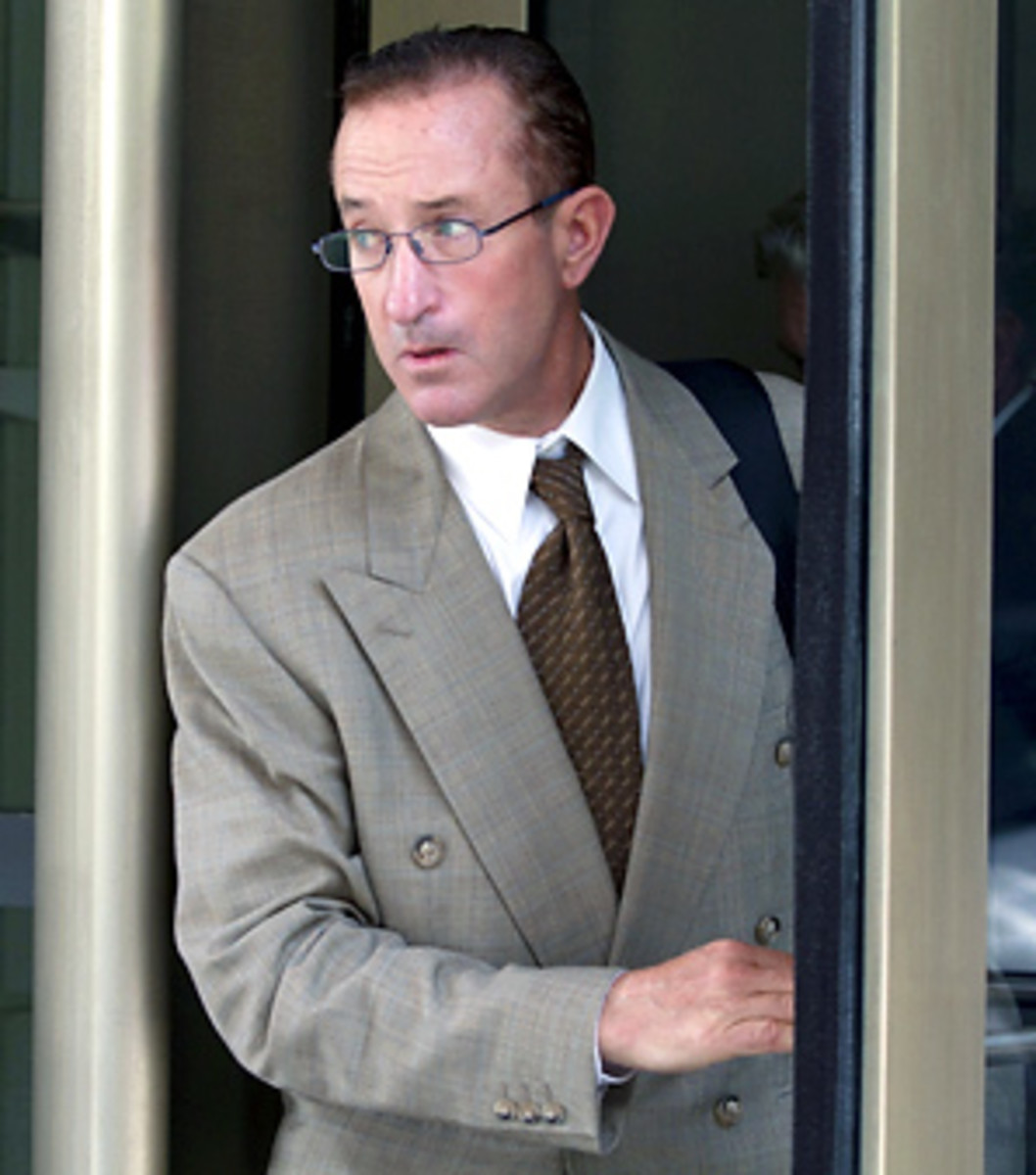Neither side scored knockout blow through McNamee's testimony
Brian McNamee, the only witness who claims to have seen Roger Clemens use steroids, returned to the stand Monday for his sixth and final day as the government's most important witness. It was a grueling experience for Clemens' former trainer and chief accuser, who endured a battering of questions, accusations and even insults during cross-examination.
McNamee may not be done testifying: although unlikely, Clemens' lawyers could try to recall McNamee to the stand when it presents its case-in-chief. In the meantime, prosecution and defense attorneys will adjust their strategies in light of McNamee's decidedly mixed performance. While McNamee clearly implicated Clemens as embracing the use of steroids and human growth hormone -- and, by implication, knowingly lying to Congress -- McNamee also invited jurors to question his own memory, veracity and intentions.
Going forward, expect Clemens' attorneys Rusty Hardin and Michael Attanasio to highlight four key McNamee admissions.
First, McNamee admitted that he lied in 2007 about the topic for which he now testifies. Namely, he lied to Clemens' representatives about having assurances from government investigators that he would not be subject to a search warrant for steroids. McNamee enjoyed no such assurances, and his purported contact with federal agent Jeff Novitzky had not yet occurred. Around that time McNamee also emailed a concerned Clemens, writing, in all caps, "I WILL NEVER BETRAY MY CLIENTS ..." As part of a proffer agreement signed with law enforcement, McNamee would provide Clemens' name, among others, in exchange for immunity.
While McNamee's lies to Clemens did not occur under oath and are thus not vulnerable to perjury charges, they were still lies. Clemens' lawyers will encourage jurors to view McNamee as untrustworthy, selfish and with clear incentive -- the avoidance of prosecution -- to incriminate others. For that reason, McNamee's syringes and other purported evidence will be portrayed as suspicious. Even if jurors suspect Clemens knowingly lied, they may hesitate to convict him if they regard his chief accuser as dishonest or disingenuous.
Second, McNamee admitted that Clemens did not specifically request steroids when he first asked for McNamee's help in 1998, and that when McNamee now claims they spoke about steroids in 2001, he failed to inform law enforcement authorities and Mitchell Report investigators about such conversation. These revelations set the table for Clemens' lawyers to characterize their client as having a less-informed and less-transparent relationship with his former trainer than previously thought. Even if jurors believe that Clemens probably used steroids, they can only convict Clemens of perjury if they believe, beyond any reasonable doubt, that he knowingly lied when testifying that he never used steroids. Knowingly is the key word. If some jurors surmise that Clemens may not have known the injections contained "steroids" then Clemens would not have knowingly lied.
Third, McNamee acknowledged that his memory has "evolved" in regards to allegations against Clemens. Yet at the same time, McNamee mostly professed a firm grasp on dates and details while on the stand. Jurors may wonder how much confidence to place in an evolved recollection of supposed facts implicating Clemens.
Fourth, even in the most favorable light, McNamee described his storage of syringes and other materials allegedly linking Clemens' DNA to steroids and HGH as amateurish and unsecure. McNamee talked about using a Miller Lite beer can and Fed Ex box as storage devices and how he mixed different players' materials in it. While prosecutors can provide expert testimony to show the adequacy of these storage devices, expect Clemens' lawyers to continue to mock the shared beer can and Fed Ex box as woefully unlike a laboratory and as susceptible to tamper or distortion.
Prosecutors were of course aware of McNamee's limitations prior to him taking the stand, but still felt confident they can secure a conviction of Clemens in spite of them. And they should be pleased with some aspects of McNamee's testimony. For instance, Judge Walton allowed McNamee to name Andy Pettitte, Chuck Knoblauch and Mike Stanton as teammates of Clemens whom McNamee provided HGH. In spite of Judge Walton's assurances to the contrary, the naming may lead jurors to reason that Clemens also used HGH.
McNamee also explained his motivations for implicating Clemens as having nothing to do with self-aggrandizement or fame, but rather out of love for his family. He stressed this motivation when recalling how he stored materials implicating Clemens in order to mollify concerns of his then-wife, Eileen, and when he turned over those materials to authorities after the pitcher played audio revealing his son's health conditions during a press conference. To accentuate these points, McNamee detailed how his own health and marriage have derailed since he became a star in the wake of the Mitchell Report. This testimony was crucial not only for prosecutors to establish a more attractive set of motivations on the part of McNamee, but also for jurors to view him as a regular human being with whom they can relate.
In sum, neither side scored a knockout blow through McNamee's testimony, as he advanced different aspects of each side's strategy. But given the absence of other eyewitnesses who, with certain memory, can corroborate McNamee's account, and given the absence of drug tests implicating Clemens, a draw probably works in Clemens' favor.
While he may be done testifying, McNamee's name will continue to come up during the testimony of others. When it does, prosecutors will probably remind jurors that the case at hand is U.S. v. Roger Clemens, not Roger Clemens Legal Team v. Brian McNamee. Jurors will also be reminded that even if McNamee is an imperfect witness, he has presented believable testimony of Clemens' guilt.






